The world’s longest migration was not on my mind as the day began.
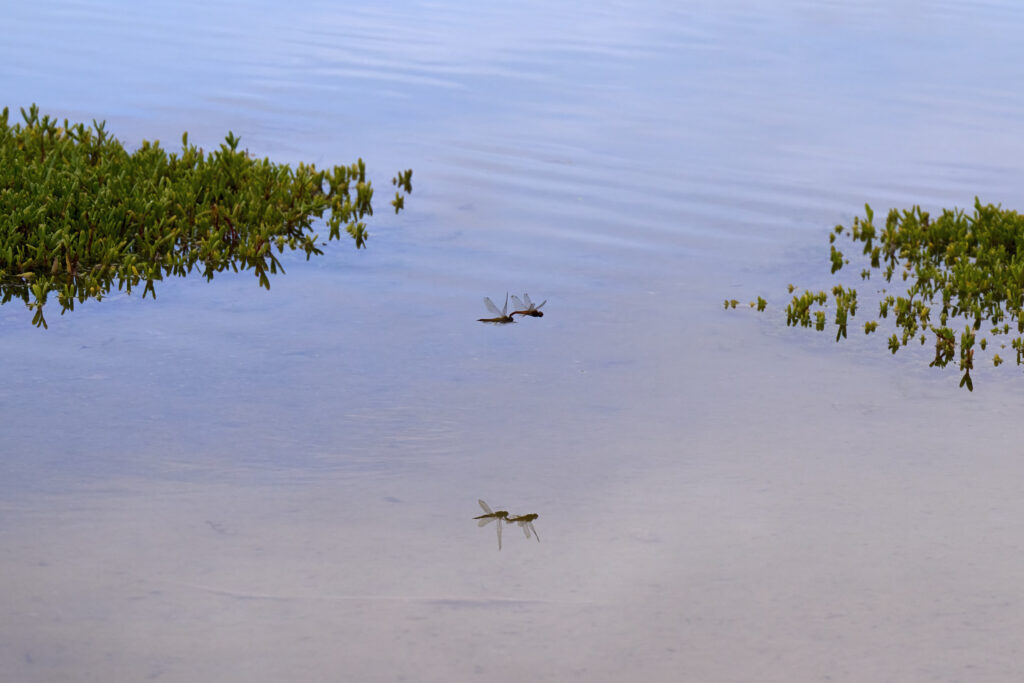
My goal was to conduct an early morning photo-shoot a the Kawaiʻele Waterbird Sanctuary a few miles west of my home in Waimea Kauai.
However, I would learn that an unplanned subject of the photo-shoot would be a record holding migrator. Kauai in general and the Sanctuary in particular is a major stopping off point for migrating birds and aquatic life.
Upon entering the sanctuary, I see many of the principle subjects of previous photo-shoots. The Hawaiian Stilt and the Hawaiian Goose are present.
A New Visitor and it is on a Migration
There is something different and new going on. A type of dragonfly is buzzing around. I have not seen it previously and do not know its name or origin. The dragonfly is definitely not the Hawaiian [anax stenus] dragonfly – the world’s largest. The Hawaiian dragonfly is colored blue and six inches in length.
It looks like I have a new subject to photograph.

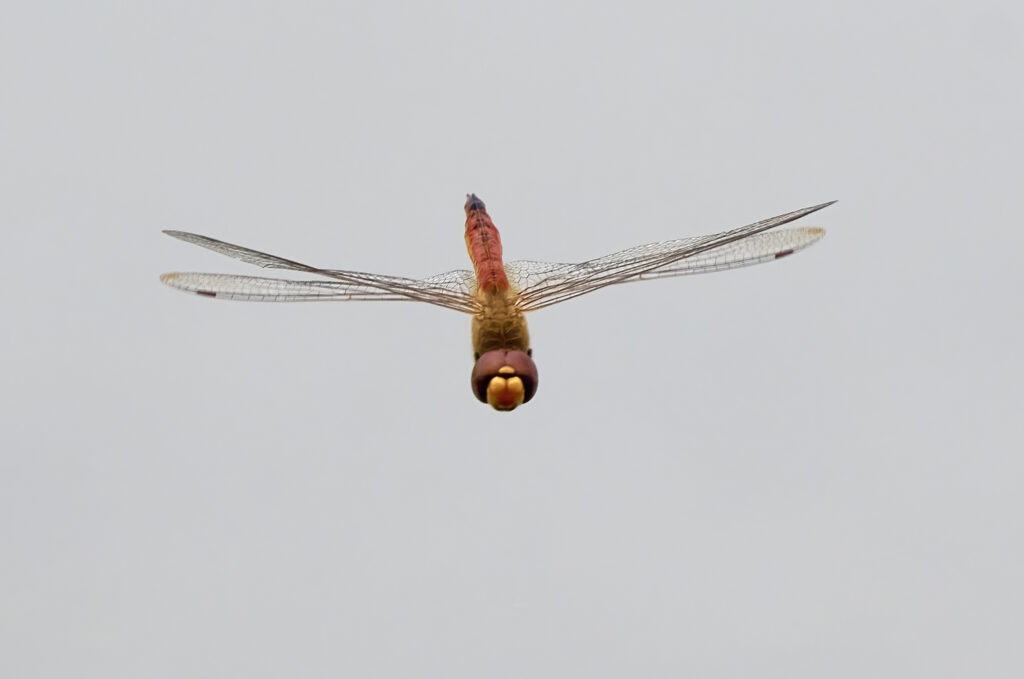
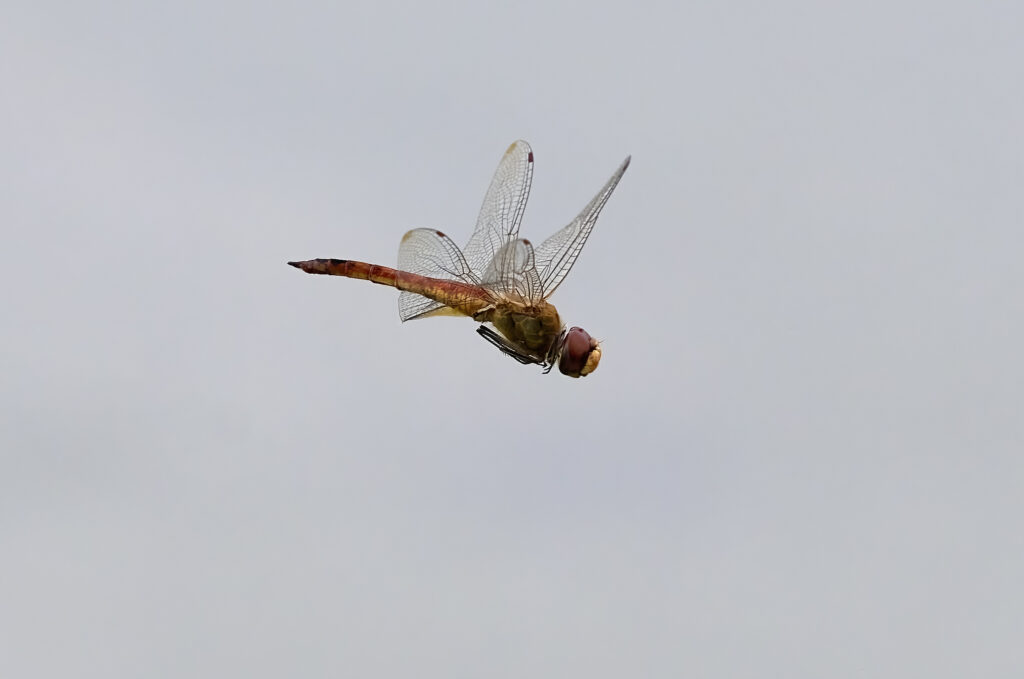
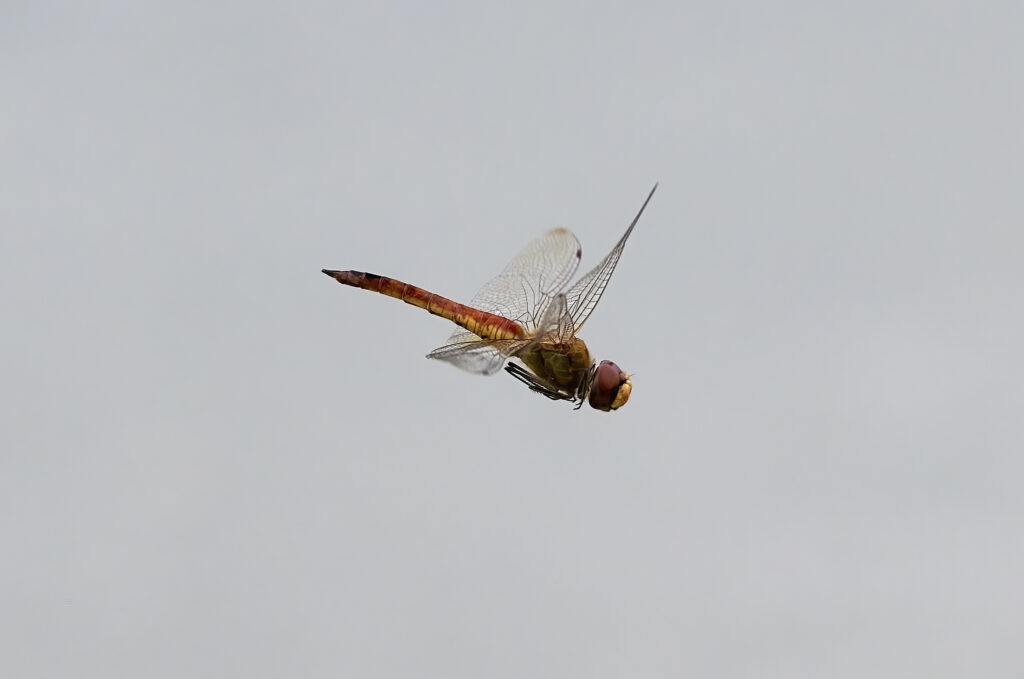
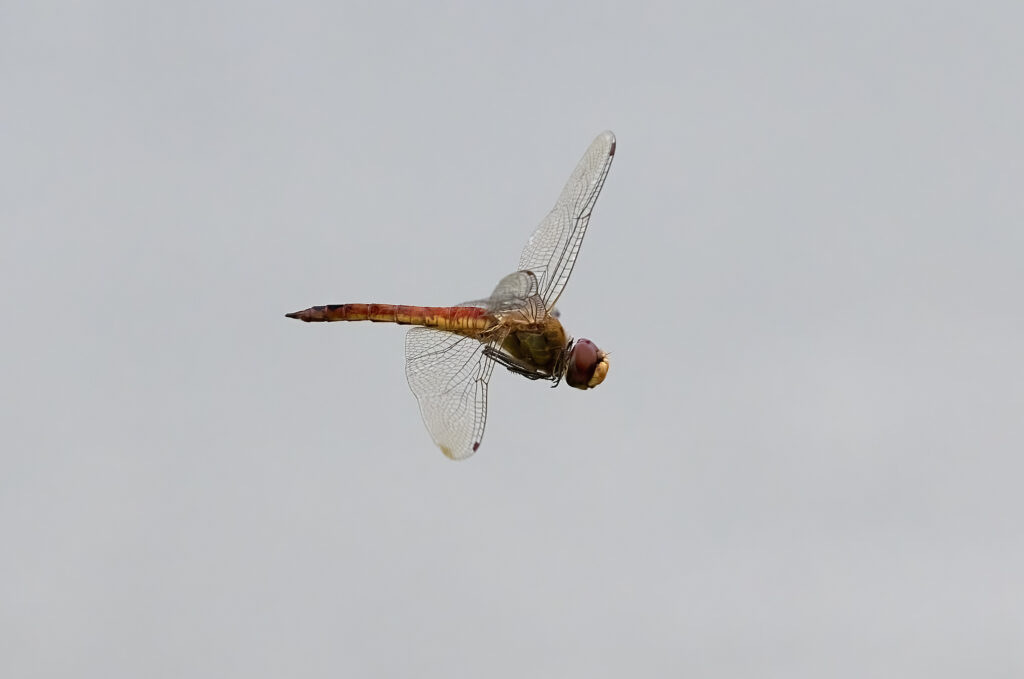
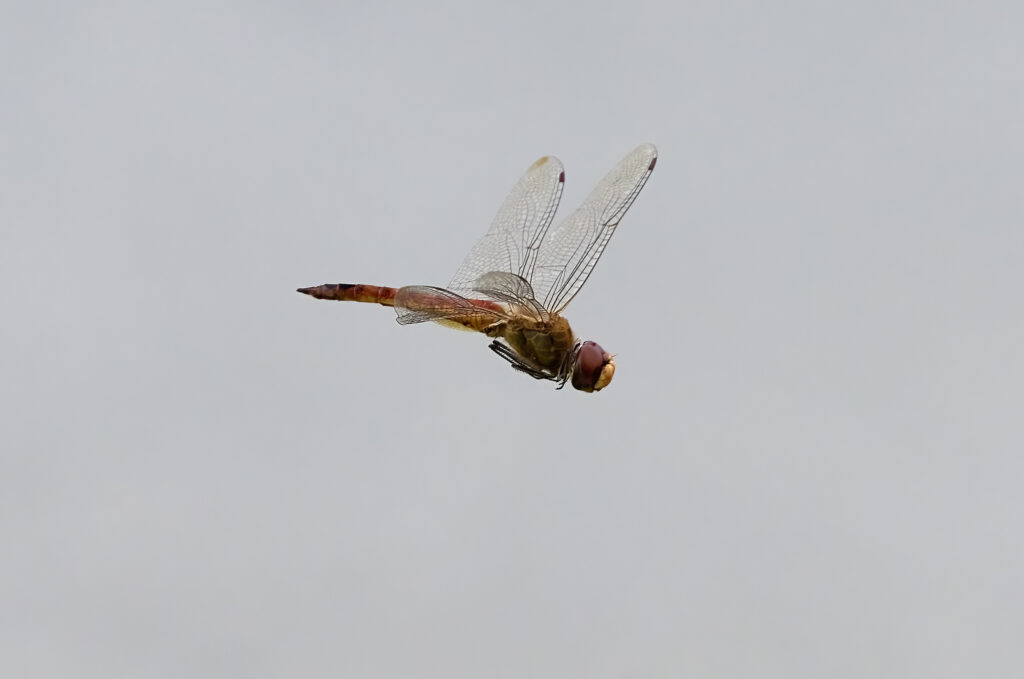
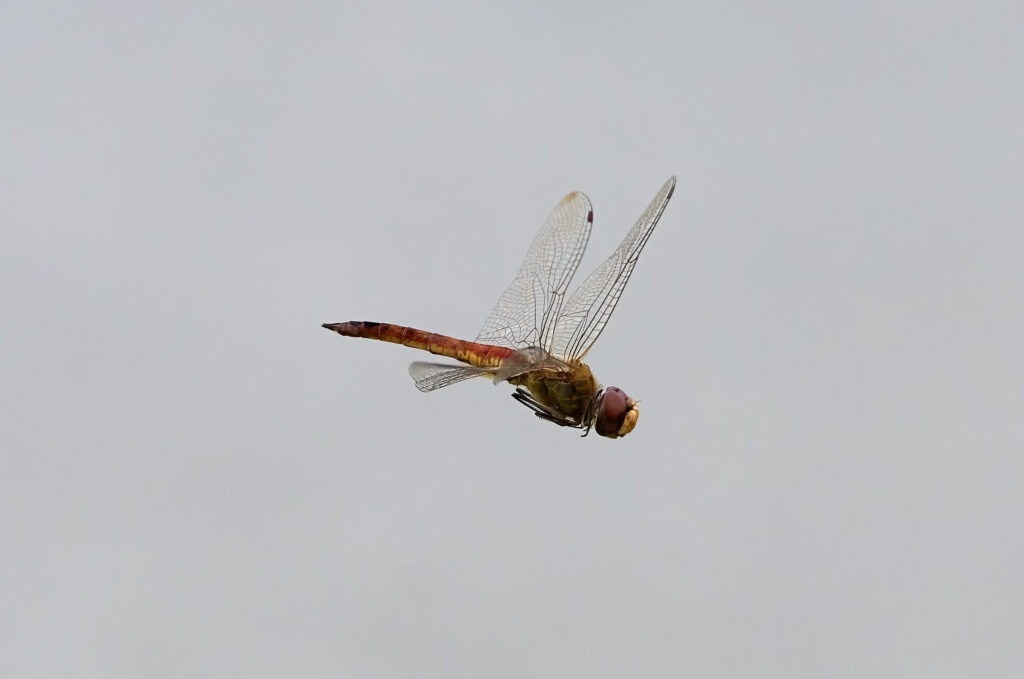
The Globe Skimmer on Migration is in the House
The dragonfly is known as the globe skimmer, globe wanderer, or wondering glider [Pantala flavescens]. The insect has flown from India to Kauai – 7,500+ miles. The globe skimmer travels up to 11,200 miles in a single migration — arguably the longest of all insect species.
The Plants are in Full Bloom
April is a big blooming month of Kauai. The blooming of many plants is occurring at the Sanctuary as well.
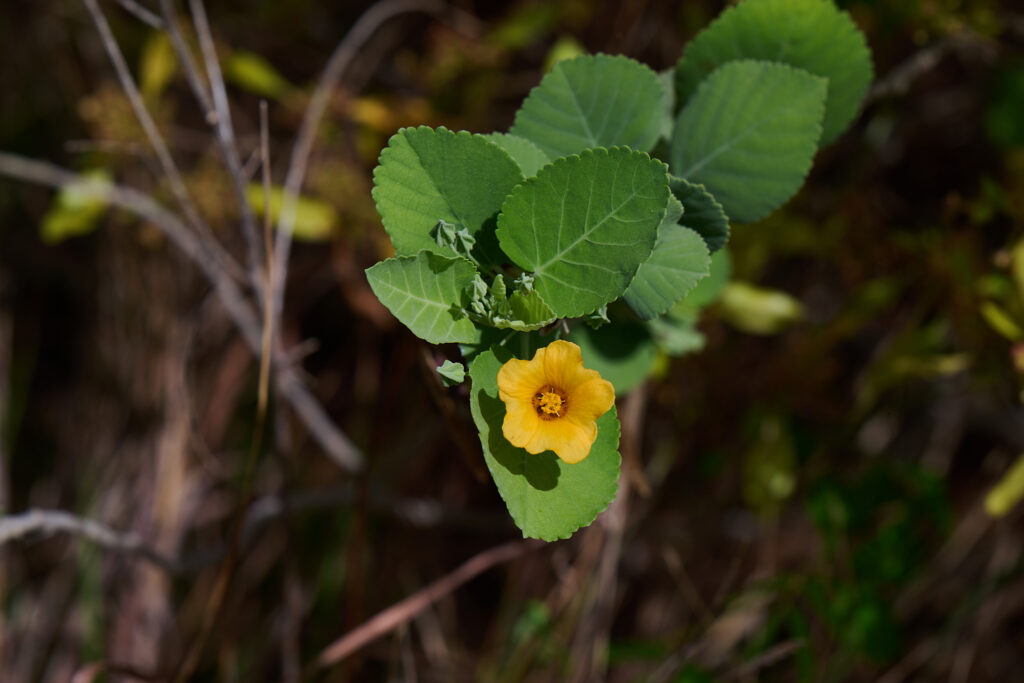
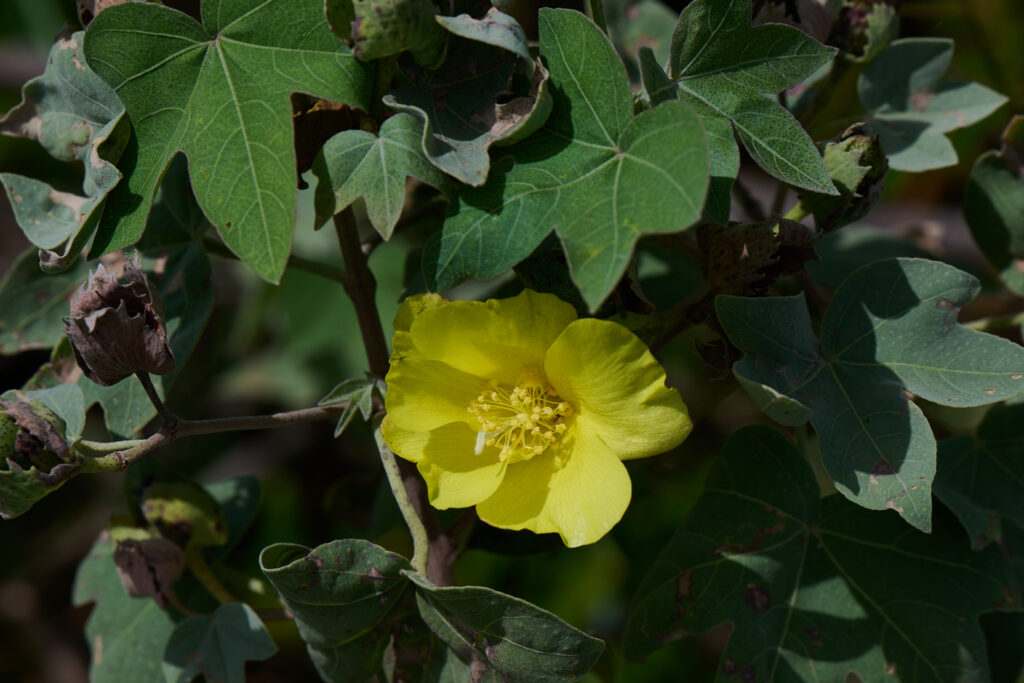
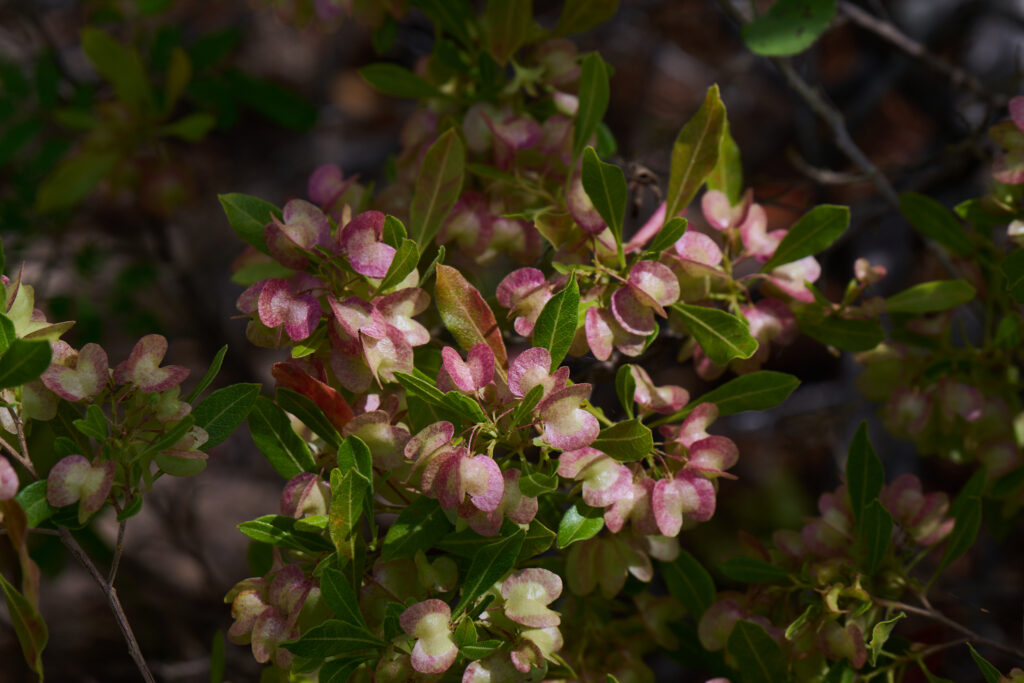
The Sanctuary is a quiet and unassuming place. If you enjoy waterbirds it a is wonderful place.
Previous Post’s and more links
A previous Post about a late afternoon photo-shoot is located [here].
A previous Post about an early morning photo-shoot is located [here].
More information on the Kawaiʻele Waterbird Sanctuary is [here].
—- Jeff’s Thoughts and Other Worthless Trivia —-
The dragonfly by the numbers:
- Can reach speeds of 35 Miles Per Hour (56 KPH).
- Wings move at 30 times per second.
- Can move forward, backward, spin, and hover.
- One of the first winged insects – 300 million years ago. Yes, they were around at the time of the dinosaur.
I utilized two cameras and two lenses to capture the images
- 2 Nikon Z9 Camera
- Nikon Z 400MM | 560MM f2.8 Prime Lens
- Nikon Z 70-200MM Zoom Lens coupled with Nikon Z 2.0 Teleconverter
I shot hand-held with manually configured settings combined with Auto Focus for the dragonfly shots
- Auto Focus
- Mode: AF-C
- Area: LS Wide or 3D
- Subject Detection: Birds
- ISO: 640 – 1000
- Shutter Speed: 1/5000s
- Aperture: f5.6 – f8
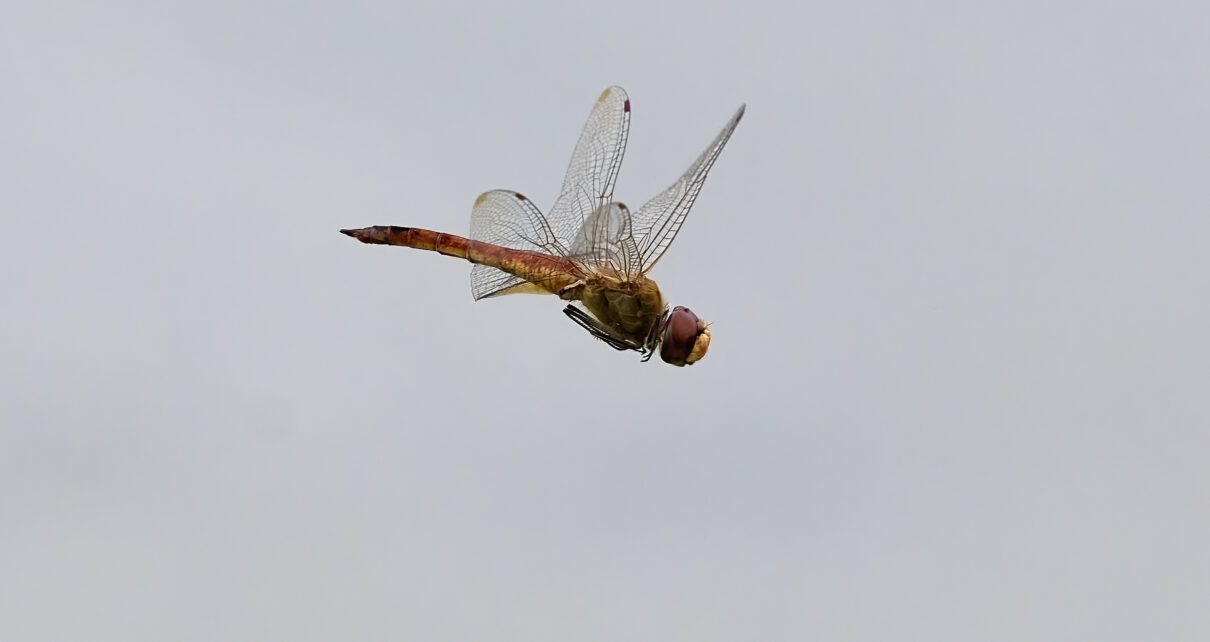
No way a.dragonfly goes from India to Hawaii. Wow!
Yes, the distance this dragonfly migrates is remarkable. It was fascinating to watch the dragonfly move forward, backward, spin, and hover. I feel fortunate to have captured each of those movements.